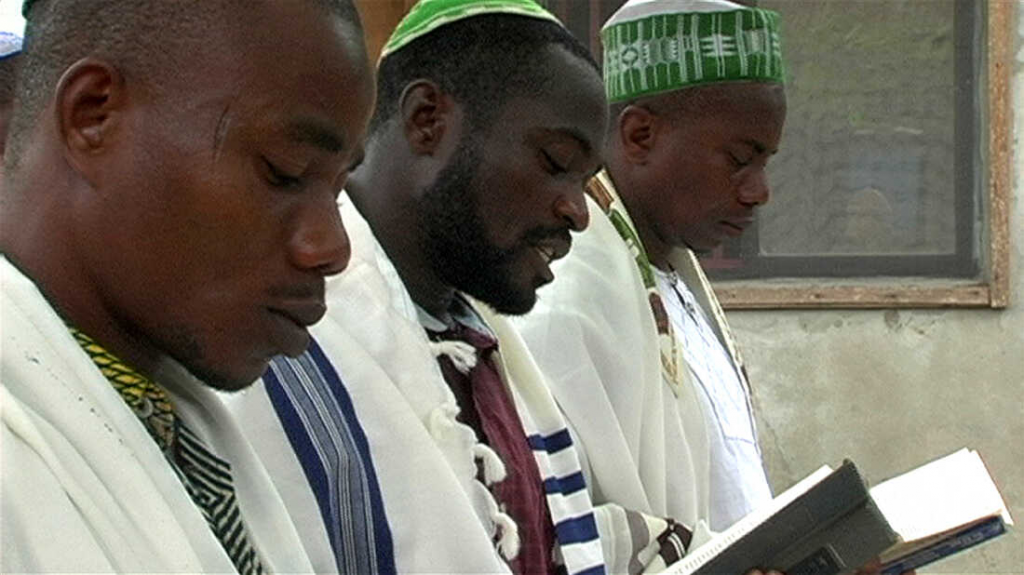Last Updated on July 13, 2022

Some Igbo have passed down several versions of a migration tale centred on the Jewish patriarch Jacob from generation to generation. According to a common interpretation of the story, Gad, Jacob’s seventh child, had three sons who eventually settled in the Igbo-dominated region of present-day southeastern Nigeria. These sons, Eri, Arodi, and Areli, are supposed to have formed clans, kingdoms, and towns that are still in existence in southeast Nigeria today, including Owerri, Umuleri, Arochukwu, and Aguleri. These sons are referenced in the book of Genesis.
Like many others, King Eri believes the Igbo are the Jews of West Africa. They consider themselves to be descended from at least one of Israel’s exiled tribes. The Assyrians invaded the northern kingdom of Israel in the ninth century B.C., driving 10 tribes into exile. It is not unlikely, according to historians, that these tribes moved westward into Africa.
Large numbers of scattered Jews have also been “lost” throughout history as a result of coerced conversions and cultural absorption. The historical accounts and oral legends about the cultural similarities between the Igbo and the Jews have proven persuasive enough to draw a wide range of people to southeast Nigeria.
Are Igbo people the lost black Jewish tribe?
The Igbo people of Nigeria have long claimed to be one of the Jewish people’s lost tribes. The Igbo people’s claim to having a Jewish heritage has been clouded by numerous issues caused by those who either reject it or who wholeheartedly embrace it. Both Igbos and non-Igbos participate in supporting and refuting this assertion. Igbo people claim Jewish ancestry, but is this true? After their fight for Biafran independence, this question is still the most remarkable one for the Igbos.
On October 22, 2007, Mr Adeyinka Makinde spoke at a seminar in Cecil Sharp House in Camden Town, North London, about a unique Black History event for the Jewish Museum. In his lecture, he emphasised the need for people to not agree with him that, despite a lack of conclusive evidence, the Igbos and Jews had a close relationship in the Holy Land of Israel. He insisted throughout his lecture that he is neither Igbo nor Jewish, but said as a researcher, that he was forced to do so because of the degree of the link that scholars have already found on this subject.
Olaudah Equiano, a Christian-educated Igbo freed slave, offered a comment on this same topic in his tale in 1789, thirteen years after America gained her independence. “The strong analogy which… appears to prevail in the manners and customs of my countrymen and those of the Jews before they reached the Land of Promise, and particularly the patriarchs while they were still in that pastoral state which is described in Genesis, which alone would induce me to think that the one people had sprung from the other,” he was quoted as saying.
Some historians disregarded his essay, much as they disregarded the idea that Igbos were Jewish; nevertheless, some historians continue to carefully consider it alongside other pieces of evidence that support this claim. In English, Mr Equiano is spelt Ikwuano, which means “four kindreds,” and was known during his lifetime as Gustavus Vessa.
He was well recognised for promoting Igbo-Jewish heritage and for speaking out strongly against the slave trade. He achieved his freedom through toil and a strong belief in himself to be the best at everything he accomplished, just like King Jaja of the Opobo kingdom, which he regarded as another attribute of his Jewish lineage.
Based on an excerpt from Equiano’s comment, Sidney Davies, the president and lead director of the Niger Association of Global African Sciences (NAGAS) and a senior research fellow at the Catherine Acholonu Research Center for African Studies, makes an argument.
In his response, Equiano claimed that his claim does not “necessarily or logically follow or conclude that the Igbos came from the Jews and, as a result, are Jews, for Equiano also admits in his parallel the option that the Jews might have emerged from the Igbos.”
According to Equiano’s assertion in his philosophical narrative, one group of people may have descended from another, leaving up the possibility that Jews may have sprung from Igbos. Although his argument did not refute the assertion, it does allow for more elucidation. This theory was founded on the remarkable parallels between Jewish and Igbo cultures, languages, and quirks, which many think go beyond simple coincidences.
Some Igbos hold the view that they are an indigenous group in eastern Nigeria who did not migrate from any place. The author of the book “History of the Igbo People,” Dr Elizabeth Isichei, quoted an unnamed Mbaise elder as saying: “The Igbos did not come from anywhere and that the ancestors of the Igbo people originated from where they live today starting from Nri, an ancient clan in present-day Anambra State,” to support this point of view. The advantages and disadvantages of Igbos being Jews or descended from Jews have been well discussed.
It is important to recognise the significant similarities between the two people’s socio-religious beliefs and way of life in many different spheres of existence. First, like Jews, Igbos are bold and forceful. A guy is allowed to parent his brother’s widow’s children under Igbo and Jewish conventions. Long funeral rites are a shared custom among the Jews and Igbos (Genesis 50:1-3).
Every male child is circumcised eight days after birth, on the same day for Igbos and Jews. It is already possible in Igboland for Igbos and Jews to negotiate marriages through intermediaries and do extensive family background checks. While negotiating Rebecca for Isaac, Abraham did it (Genesis 24.). The Living Document of Ekwulobia, written by the late Professor Dike and enlarged by I.C.U. Enochusi, promoted the idea that Igbos have three origins and are established in their houses throughout the course of two different time periods.
He said that the original Igbo people were pure Jews who journeyed through North East Africa until they arrived at their current habitation. The Nris, Igbo ukwus, Aros, and Otuochas are said to be this stock of Igbo people. The second stock of Igbos originated in the 17th century A.D. when people from Benin moved eastward, increasing the number of the Ika Igbos, who are primarily found in present-day Delta State.
The Benue River region is the third Igbo origin. To escape the Fulani slave trade, these Igbos moved from the Igala region of the lower Benue River into the Igbo belt in the late 17th century. The majority of these Igala Igbos reside in Anambra East and West Local Government Regions, as well as some areas of northern Enugu State, which is located in the northern part of the Igbo homeland.
All of this wouldn’t mean much if the wooden stool in Nri, which is regarded as the birthplace of the Igbos, didn’t exist, especially if it didn’t exist there before the Igbos had any interaction with outsiders. According to legend, the stool’s wood came from a tree that can only be found or grown in Jerusalem. The former Israeli Prime Minister Yitzhak Rabin sent delegates to Igboland to look for “Eri” in order to verify this fact, which seems to be one of the most persuasive pieces of Igbo Jewish ancestry proof.
The question of whether or not Igbos had Jewish ancestry or whether Jews descended from Igbos is still being researched in this area.











